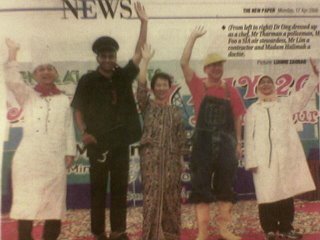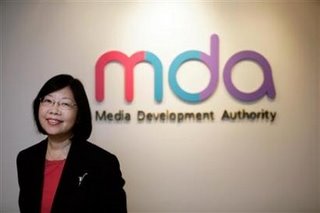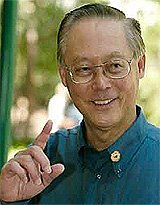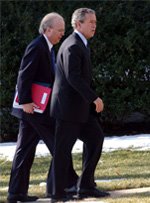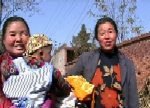In light of the current debate on
elitism in Singapore, ignited by a blog post by student
Wee Shu Min, I post excerpts from a paper by academic Micheal D. Barr,
Beyond Technocracy: The culture of elite governance in Lee Hsien Loong’s Singapore.Barr is also the author of the following
The Charade Of Meritocracy,
Lee Kuan Yew: Race, Culture and Genes and
Lee Kuan Yew: The Beliefs Behind the Man  Personnel: The “elite”
Personnel: The “elite”This concept of “the elite” is central to the operation of the Singapore system. It grew in the mind of Lee Kuan Yew into a self-conscious, self-righteous class of talented and brilliant people with strong character, who are imbued with a collective sense of purpose and a consciously collective understanding of the thinking of the group.
Its apex and core lie in the political and administrative leadership, but its outer circles include the talented among all walks of society. Prime Minister Lee Hsien Loong recently described the elite as “a core group of people who occupy key positions of power and influence, and set the direction for the whole
society and country”.
Lee Kuan Yew described this elite many times, but this sense of selfconsciousness as an elite is perhaps best conveyed in a speech he gave in August 1966:
It is essential to rear a generation at the very top of society that has all the qualities needed to lead and give the people the inspiration and the drive to make it succeed. In short, the elite...
Every society tries to produce this type. The British have special schools for them: the gifted and talented are sent to Eton and Harrow and a few very exclusive private schools which they call “public schools”; after that they go to Oxford and Cambridge. And they have legends which say that the Battle of Waterloo was won on the playing fields of Eton.
In this speech Lee also directly linked his elitism and his progressivism:
True, not every boy is equal in his endowments in either physical stamina or mental capacity or character. But all those with the potential to blossom forth must do so. That is the spearhead in the society, on whom depends the pace of our progress.
Lee’s elite has many characteristics in common with the English concept of “class”, whereby members of the upper class can speak of someone being “one of us”, but in Singapore this has been mixed shamelessly with the Chinese concept of a scholarly “mandarinate” to produce a peculiarly Singaporean conception that has, in the minds of its members, the best of both worlds.
PatronagePatronage is a vitally important element in the rise of anyone in the Singapore political and administrative elite. “Talent” and paper qualifications are sufficient in themselves to attract the notice of those with patronage to disburse, but at some point one needs to plug into a patronage network. The earlier in life one is able to do this, the better. Ideally such links would come through one’s family, but networks forged at school, or through corporate, civil or military service can prove nearly as advantageous.
Although there are elements of favouritism and nepotism in this system, the key is not found in such considerations. The absence of “talent” is sufficient to disqualify one from rising very high in the political and administrative hierarchy, no matter who your father is, but once a young man or woman has demonstrated “talent” (initially through success in examinations at school and university) one needs to be socialised into the “elite”. A substantial part of the networking and patronage is directed at socialising young bloods into the mindset and skill set of the “elite” to ensure the perpetuation of the system.
 Lubricant: Personal power
Lubricant: Personal powerDespite the genuinely meritocratic elements of the system, the oil that lubricates the Singapore system is the exercise of personal power, a feature that is common to both class systems and the traditional Chinese mandarinate. The personal character of power is demonstrated without much effort in the person of Lee Kuan Yew, who remains in Cabinet 15 years and two Prime Ministers after his retirement from the premiership, with the unlikely title of “Minister Mentor”. He was previously “Senior Minister” for the duration of Goh Chok Tong’s premiership, but now Goh holds that title. His presence in Cabinet must be most uncomfortable for Lee Hsien Loong. Not only does he have to work in the shadow of the founding father of modern Singapore, as did his predecessor, but in his case the man in question is his father. Even if Hsien Loong is really his “own man”, who is going to believe it?
Hsien Loong did not even get to announce the new line up. It was Lee Senior who announced that he would continue in Cabinet for as long as he was fit and able to serve, and it was Lee Senior who announced the new hierarchy (for protocol purposes) within the Prime Minister’s Office, whereby he would be third in line behind Prime Minister Lee Hsien Loong and Senior Minister Goh Chok Tong. An anonymous “government official” was left to confirm Lee Senior’s announcement six days later.
Why does Lee Hsien Loong not simply remove him from Cabinet as is his constitutional right? Why did not Goh Chok Tong do so when he was Prime Minister? Regardless of the power they notionally possess or possessed by virtue of their institutional positions, they both understand that in or out of Cabinet, Lee Kuan Yew retains his personal networks and his personal power. He needs a seat in Cabinet only so that he can legally have open access to Cabinet and other official papers and legally retain his privileged links to the Internal Security Department. On balance Lee Hsien Loong may not even want to see him gone yet because his own power networks are still underpinned by his father. In the case of Goh Chok Tong, his efforts as Prime Minister to build a personal and independent power base were thwarted by both Lees – father as Senior Minister and son as Deputy Prime Minister. In the end, after being outflanked by father and son during a property scandal involving the Lee family in 1996, Goh gave up trying to exercise real power and handed the reins of domestic government over to Deputy Prime Minister Lee Hsien Loong. In any case, Goh’s efforts were never going to be very complete because he had no relatives in government, or in the elite. It was probably this characteristic more than any other that made him an ideal stop gap between father and son.
 PM Lee Hsien Loong
PM Lee Hsien LoongThe new Prime Minister’s curriculum vitae reads as an exemplary case study of the way that personal power, personal connections and related social advantages lubricate the meritocratic system. Lee Hsien Loong was born in 1952 as the eldest son of two brilliant solicitors, one of whom was to become Prime Minister. His economic position was comfortable without being wealthy (at least not in his early life), but more importantly he had the immense advantage of being born into an English-speaking Chinese household. Even without other considerations, this made him part of a small privileged elite in the Singapore of the 1950s because the Chinese were the dominant ethnic group and English was the language of the colonial elite.
After independence in 1965, his father successfully set out to make English – his own family’s first language – the dominant language of the Republic and the prime language of education.
Lee, however, was not content with his children being just monolingual. Even at this early stage Lee Senior had developed a fixation with what he would later call the “cultural ballast” provided by one’s “mother tongue”, and he sent Hsien Loong to top Chinese-medium schools (Nanyang Primary School and Catholic High School) so he could also master Mandarin.
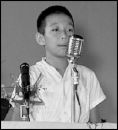
Yet despite this immersion in a Chinese-language environment, Hsien Loong was failing his Mandarin, so his parents arranged for private tuition. This enabled him to barely pass his A Levels.
His relative mastery of Mandarin was to put him in good stead since, unbeknownst to anyone else, his father was later going to place bilingual Chinese (English and Mandarin-speaking) at the apex of the political and administrative elite.
As if this was not enough of an advantage, just as Hsien Loong finished his senior years of school, as if on cue the first of the Junior Colleges (JCs) opened to offer elite students a specialist study and tuition environment to prepare for university. It is barely conceivable that this is a coincidence, but it remains a fact that Hsien Loong was in the first intake of the first JC, National Junior College (NJC), where against all common practice he was allowed to sit for the Cambridge A-levels in two stages. He matriculated with A1s in pure and applied maths and an A2 in physics in 1969, and then returned as a part-time student to sit for the full set of examinations and improve his matriculation results, presumably to get a head start in Cambridge.
On the strength of his 1969 results alone he was one of eight winners of the prestigious President’s Scholarship in 1970, and also won a Public Service Commission scholarship to Cambridge to study mathematics.
After attending NJC, he also voluntarily began his National Service while waiting to depart for Cambridge, even though, as a scholarship winner, he could have deferred.
As “luck” would have it, his decision to start his National Service early served him well. While doing his National Service the Ministry of Defence initiated a system of SAF Overseas Merit scholarships and Lee was in the inaugural group of five men to win one for his study in Cambridge.
Upon his return to Singapore in 1974 the SAF initiated a scholarship and leadership programme for serving officers. Unsurprisingly, Lee Hsien Loong was in the first intake.
All in all, Lee made good use of his study opportunities while he was in the SAF. From 1971 to 1974 he studied at Cambridge, where he graduated with Double First Class Honours in Mathematical Statistics and Mathematical Economics and a distinction in a Diploma in Computer Science. After a mere three years working as a regular officer in the SAF, he was posted to Fort Leavenworth, USA, where he studied at the US Army Command and General Staff College from 1978 to 1979. Upon completion of these studies he stayed in the US for another year as a Mason Fellow at the Kennedy School of Government, Harvard University, graduating in 1980 with a Masters in Public Administration. By this stage he had risen to the rank of Major in the SAF, despite having only served for about three years on operational duty. Despite his inexperience he was made Director, Joint Operations Planning Directorate from 1981 to 1982, and then became Chief of Staff (General Staff) from 1982 to 1984, by this time having risen to the rank of Brigadier-General.
The SAF did not get very good value out of their investment, however, for Lee Hsien Loong left the SAF to run for parliament in 1984.
I have no precise knowledge of the operation of favouritism during his military career, so we can only speculate about the importance of his family name in his rapid and comfortable rise through the ranks, risking not much more injury than paper cut.
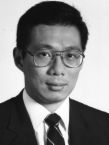
On his entry into politics, however, there is less need to speculate. Many months before the announcement of his entry into politics, civil servants in the Housing and Development Board (HDB) were told that their job was to prepare the ground in Ang Mo Kio constituency for an Army officer who was going to retire soon and enter politics at the upcoming election. In this case the business of “preparing the ground” involved ensuring that the creation of the first Town Council (another first for Lee Hsien Loong) went smoothly.
Zulkifli Baharudin, an officer in the HDB, was put in charge, and apart from the administrative work of setting up a new municipal authority, he oversaw and engaged personally in door knocking, talking to hawkers and shop owners, making sure everyone was happy. Zulkifli says that this was his first political education and his first “real contact with the constituency”. He said in interview that even without knowing that it was Lee Hsien Loong who was being parachuted into the electorate, the work was given a high priority because the ruling People’s Action Party (PAP) “was going to fight the election on the basis that it is best able to manage and lead a new municipal entity”. A few months before the election he was told that the new Member of Parliament was “the son of Mr Lee”. After that, the work intensified, and he remembers it as the hardest working period of his life.
Lest anyone is left with lingering doubts that the selection of Lee Hsien Loong’s constituency for the first Town Council might have been an arbitrary selection, it is worth noting that the next assignment given to Zulkifli was setting up the second Town Council in Prime Minister Lee Kuan Yew’s electorate, Tanjong Pagar.
It is doubly significant to this study of personal power, patronage and special opportunities that having proved his worth and – it was assumed – political reliability, Zulkifli was later invited to stand for Parliament as a PAP candidate.
The unofficial secondment of a team of civil servants into working for the re election of the PAP government in an election is not extraordinary in itself. Entire ministries routinely devote their resources to the PAP during General Elections. I have interviewed two other civil servants who have worked in two different ministries who each took part in election work on behalf of the PAP during the 1991 election. One (in the Ministry of Information and the Arts) was involved in a ministry-wide exercise of monitoring and managing the press on behalf of the PAP. The other (in the Prime Minister’s Office) was part of a team of civil servants who attended political rallies and reported on mood and responses among the crowds. This was a comprehensive exercise that involved overtime, scheduled shift work, taxi vouchers and full use of the civil service infrastructure. Another interviewee who was campaigning for an opposition candidate (Chee Soon Juan) during the 1996 elections was followed during his waking hours by two people he presumed to be ISD agents (from the Ministry of Home Affairs). The exercise was carried out without any serious effort at subterfuge, so the primary purpose of the exercise was presumably intimidation rather than surveillance.
The dedication of civil service resources on behalf of the PAP is therefore considered routine within the civil service, but the significant feature of Zulkifli’s story is the special treatment accorded “the son of Mr Lee”, even by the standards of PAP candidates. And make no mistake. At that stage of his career, Lee Junior’s handling of his constituency was so clumsy that he would have been in trouble without this help. He tried to approach his early “walkabouts” like a military inspection, allocating a set time to each floor in each block and expecting his constituents to fit in to his schedule.
Not that you would have known that from reading the press reports at the time. The press at the time brimmed with adulatory reports about the PAP’s new candidate for Ang Mo Kio, beginning with reporting the occasional political speech that he was allowed to make while he was still a serving officer in the army.

From there Lee was catapulted into test after test set by his father, all of which he “aced”, riding on his energy, intelligence and problem-solving ability. At this point it is worth noting that he really is intelligent and hard working. His path through life was cleared by family connections, but family connections are not sufficient to win a double first from Cambridge University, or to hold down very senior positions in a highly professional army. He did these things and then went on to do more as a Minister. His first test was to tackle the recession of the mid-1980s as the Chairman of the Economic Review Committee. From there he went from strength to strength. He had a dream run through the sensitive and powerful Trade and Industry and Finance ministries and became a Deputy Prime Minister in 1990. His progression was interrupted only by a cancer scare that set back his succession to the premiership by a few years. Without belittling the scale of his achievements, it is important to note that he had an immense advantage over and above his innate “talent” in that he had much greater freedom to act than any other member of Cabinet apart from his father. Whereas his more experienced and more senior Cabinet colleagues had to take tiny, incremental steps to unwind any of Lee Kuan Yew’s initiatives, from the start Lee Hsien Loong was fearless in striking down sacred cows, beginning with the Central Provident Fund.
He could afford to be. He could live up to the mantra, “change it, improve it and build on it” with a freedom enjoyed by almost no one else in the country. As Prime Minister (and even as a disproportionately powerful Deputy Prime Minister) he was also able to invite others into his aura of autonomy, though their autonomy is heavily circumscribed because it is dependent on his patronage. Current beneficiaries of Lee’s largess include the “rising stars” he has been nurturing in Cabinet – especially Tharman Shanmugaratnam and Khaw Boon Wan. Thus Lee’s mantra is a circumlocutious cry of self-legitimation that is personified in Lee Hsien Loong himself and his father. Others may share in it only insofar as their education and
“talent” allows, and insofar as they have been socialised into the world of the elite.
 Conclusion
ConclusionThe Singapore system of elite governance is truly a remarkable beast. Under the legitimating ideology of meritocratic elitism it delivers an effective and thoroughly modern style of technocratic governance that is nevertheless riddled with distortions and failings that threaten to make a mockery of the basic principles of its legitimacy. Worse, some of these distortions – notably the exercise of personal power and the operation of privilege and connections – are intrinsic to the operation of the system to the point where the legitimating ideology starts to look like a threadbare cover for the perpetuation of a dynasty. And yet the system works.
There is enough talent in the dynasty and enough truth in the myths of meritocracy, elite governance and pragmatism to ensure that the city-state is in safe hands, and that it is likely to stay that way for the foreseeable future. If the reality were allowed to stray too far from these ideals then the whole system would degenerate into crony politics – and that is not going to be allowed to happen. The imperfections and distortions create some insecurity and tension, but these are not fatal to the system. The ruling elite clearly believes that they are an acceptable price for peace, prosperity and a smooth, if imperfect system of elite regeneration.
Read the complete article (on pdf format) here








